Qatar
World Cup organizers will ban the sale of all beer with alcohol at the eight stadiums used for the soccer tournament, the Associated Press has gathered.
The decision comes only two days before games start in Qatar and 12 years after the country first consented to respect FIFA's commercial partners.
Non-alcoholic beer will still be available for fans at the 64 matches, according to the source who spoke on condition of anonymity.
Champagne, wine, whiskey and other alcohol is still expected to be served in the hospitality areas of the stadiums. Outside of those places, beer is normally the only alcohol sold to regular ticket holders.
Ronan Evain, the executive director of the fan group Football Supporters Europe, called the decision to ban beer sales at the stadiums "extremely worrying."
"For many fans, whether they don't drink alcohol or are used to dry stadium policies at home, this is a detail. It won't change their tournament," Evain wrote on Twitter. "But with 48 (hours) to go, we've clearly entered a dangerous territory — where 'assurances' don't matter anymore."
While a sudden decision like this may seem extreme in the West, Qatar is an autocracy governed by a hereditary emir, who has absolute say over all governmental decisions.
Qatar, an energy-rich Gulf Arab country, follows an ultraconservative form of Islam known as Wahhabism like neighbouring Saudi Arabia. However, alcohol sales have been permitted in hotel bars for years.
Qatar's government and its Supreme Committee for Delivery and Legacy did not immediately respond to requests for comment.
Already, the tournament has seen Qatar change the date of the opening match only weeks before the World Cup began.
Budweiser's parent company, AB InBev, pays tens of millions of dollars at each World Cup for exclusive rights to sell beer and has already shipped the majority of its stock from Britain to Qatar in expectation of selling its product to millions of fans.
The company's partnership with FIFA started at the 1986 tournament and they are in negotiations for renewing their deal for the next World Cup in North America.
When Qatar launched its bid to host the World Cup, the country agreed to FIFA's requirements of selling alcohol in stadiums, and again when signing contracts after winning the vote in 2010.
At the 2014 World Cup in Brazil, the host country was forced to change a law to allow alcohol sales in stadiums.
AB InBev's deal with FIFA was renewed in 2011 — after Qatar was picked as host — in a two-tournament package through 2022. However, the Belgium-based brewer has faced uncertainty in recent months on the exact details of where it can serve and sell beer in Qatar.
An agreement was announced in September for a beer with alcohol to be sold within the stadium perimeters before and after games. Only alcohol-free Bud Zero would be sold in the stadium concourses for fans to drink in their seats in branded cups.
Last weekend, AB InBev was left surprised by a new policy insisted on by Qatari organizers to move beer stalls to less visible locations within the perimeter.
Budweiser was also to be sold in the evenings only at the official FIFA fan zone in downtown Al Bidda Park, where up to 40,000 fans can gather to watch games on giant screens. The price was confirmed as $14 for a beer.
Ab InBev did not immediately respond to a request for comment.
The company will be based at an upscale hotel in the West Bay area of Doha with its own branded nightclub for the tournament.



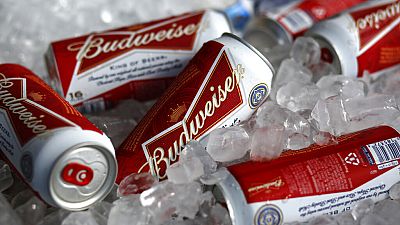

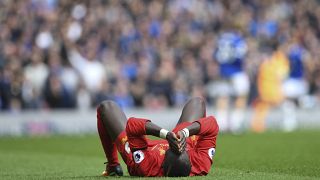
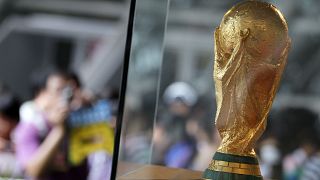
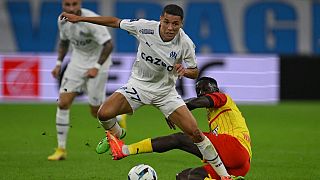
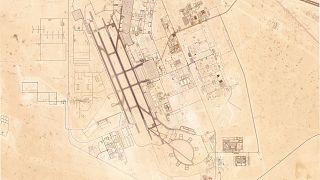
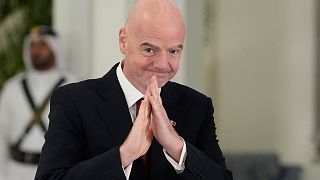
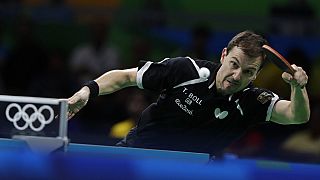
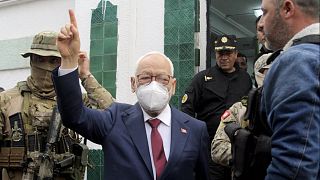
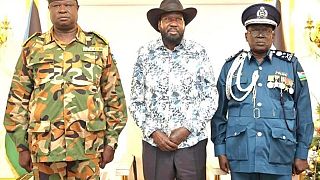

Go to video
Ghana cracks down on gold smuggling with new multi-agency task force
Go to video
African migrants targeted as visa scams surge amid tougher immigration rules in Canada
Go to video
What to know about a potential deal to keep TikTok running in US
Go to video
AI videos falsely show Kenyan President resigning following deadly protests
01:30
Top South African official accuses police minister of colluding with crime syndicates
Go to video
Museveni to run again as Uganda's ruling party picks him for 2026 election